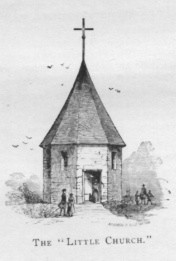
| New Netherland series |
|---|
| Exploration |
| Fortifications: |
| Settlements: |
| The Patroon System |
|
| People of New Netherland |
| Flushing Remonstrance |
 |
Voorleser was the title given to a responsible citizen in New Netherland and later Dutch colonies who had semi-official duties in local law, education and religion.